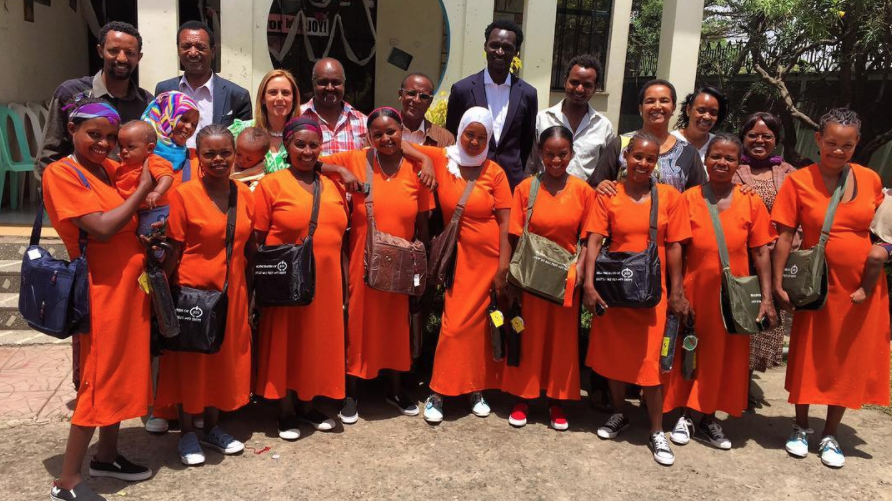ECONOMIC INDEPENDENCE FOR ALL WOMEN
This International Women’s Day, we turn our attention to the incredible communities helping fistula survivors earn not just a living, but also a meaningful and independent life.
A woman living with obstetric fistula can be successfully treated by having corrective surgery. However, although she is physically “dry”, the social stigma that surrounds her continues to impede her mental wellbeing and she continues to be isolated from her community. As a result, it is overwhelmingly difficult for her to have any sort of economic prospect once she returns home. In Nigeria, a study reported that women with fistula were 50 percent more economically impoverished by job loss.
Reintegration into society depends on the successful transition from being identified as unworthy to being seen as active and independent in community life. This requires social integration programs dedicated to training women in life skills to help them return to employment after repair. Social and economic reintegration is just as vital to the woman’s empowerment as the surgery that repairs her fistula.
Here are some inspiring programs that are helping to tackle social exclusion and poverty for fistula survivors:
- Quilts For Empowerment
This Kenyan organization teaches quilting to Kenyan obstetric fistula survivors and young sexual assault survivors. They help women gain the skills to become economically independent and assist the girls to complete their education.
- Healing Hands of Joy
This NGO has four key initiatives to help fistula survivors, one of which is the Safe Motherhood Ambassadors which trains fistula survivors to educate pregnant mothers on safe delivery practices, literacy training, counseling, income generating skills and micro-loans
- Terrewode
Terrewode runs a Women’s Empowerment and Economic Self-reliance Centre (WEES) which operates training camps to reintegrate women based on their individual needs. Find out more about their work here.
Our work
OpFistula is currently having exploratory meetings in Madagascar to work on how we can use patients’ data in the reintegration process. We are working on preliminary “follow up” forms to be used on our GOFAR app which will be used by community health workers to track patients’ progress after they return to their communities.
This ultimately bridges the “gap” between the community health workers and the organizations/facilities to ensure the wellbeing of their patients. This network of community health workers will be able to gain valuable insight into the factors contributing to their social exclusion so that they are able to respond accordingly. We envisage patterns emerging and are beginning to ask questions such as, “does the level of education the patient received alter her rate of exclusion after surgery?”
On International Women’s Day, we recognize both the strength of these fistula survivors and the support of the communities who help them achieve prosperity and worth after surgery. And let’s make sure their resilience is acclaimed for not just these 24 hours, but every day of the year.
